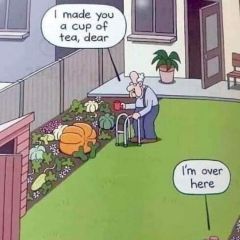IGNORED
80% of handicap in match play
Note: This thread is 3154 days old. We appreciate that you found this thread instead of starting a new one, but if you plan to post here please make sure it's still relevant. If not, please start a new topic. Thank you!
-
Topics Being Discussed Right Now on The Sand Trap
-
- 46 replies
- 10,080 views
-
"5 Minutes Daily" Practice Challenge 1 2 3 4 841
By iacas, in Instruction and Playing Tips
- 5 minutes daily
- dedication
- (and 6 more)
- 15,135 replies
- 913,309 views
-
- 6 replies
- 253 views
-
- 1,204 replies
- 158,292 views
-
- 8 replies
- 1,733 views
-




Recommended Posts
Create an account or sign in to comment
You need to be a member in order to leave a comment
Create an account
Sign up for a new account in our community. It's easy!
Register a new accountSign in
Already have an account? Sign in here.
Sign In Now